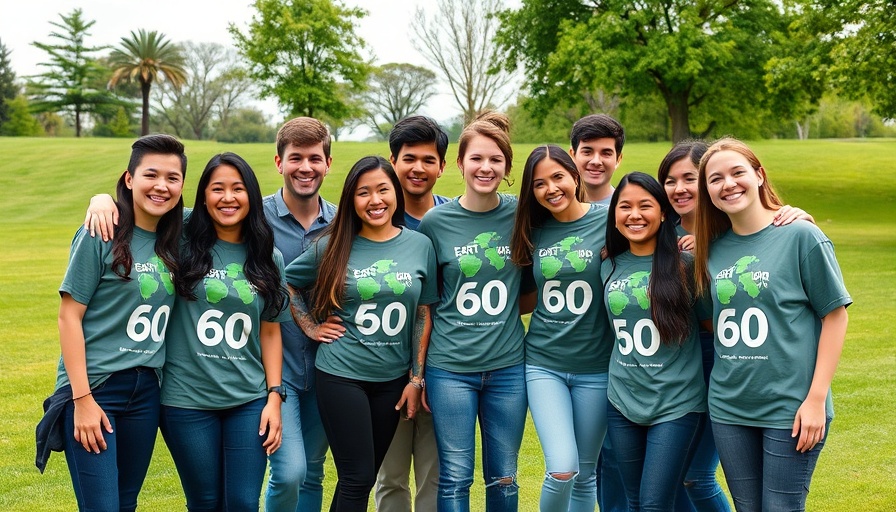
Join Forces for Earth Hour 2025: A Call to Action
As Earth Hour 2025 approaches, South Africans are being rallied by WWF South Africa to unite like never before. Scheduled for March 22, this global event, known as The Biggest Hour for Earth, invites everyone to dedicate at least 60 minutes to action that supports the environment. This initiative is an embodiment of the collective power we hold to advocate for our planet amidst the pressing threats of climate change and biodiversity loss.
Why Earth Hour Matters: Understanding the Impact
Since its inception in 2007, Earth Hour has grown into a monumental global movement, with 180 countries participating in past events. The excitement of shutting off lights for one hour is merely a symbolic gesture; it represents a much larger commitment to addressing critical environmental issues. Last year, more than 1.5 million hours were logged in activities dedicated to Earth Hour, demonstrating a robust global response to the call for action. This year, WWF South Africa aims to exceed that with a target of 2 million hours.
Showcasing Local Participation: Events and Activities
Participants in South Africa can look forward to flagship events at prominent botanical gardens in Cape Town and Johannesburg. Here, attendees can enjoy an outdoor screening of Happy Feet—a fun family-friendly film that emphasizes the importance of our planet. Tickets are reasonably priced to ensure broad community access, encouraging everyone to join the conversation about sustainability and collective action for nature.
What You Can Do: Engaging in Eco-Friendly Activities
Engagement is key during Earth Hour 2025, and options abound for how people can contribute. Here are a few fun and impactful activities:
- Host a sustainability lunch: Choose locally sourced ingredients and share mindful discussions on eco-friendly practices.
- Organize a plogging event: Combine jogging with trash pick-up, promoting fitness and environmental cleanliness.
- Outdoor yoga: Schedule a yoga session surrounded by nature, connecting physical wellness to environmental mindfulness.
By participating in these events or creating their own, people can enrich their local environments while supporting the global community.
Broader Implications: The Urgency of Climate Action
Kirsten Schuijt, Director General of WWF International, aptly stated that the stakes have never been higher regarding climate action. 2024 marked the hottest year on record, with severe climate events underscoring the urgency of sustainable practices. Earth Hour is more than a moment; it’s a movement. It represents our shared responsibility and capacity to invoke meaningful change. Each hour dedicated to caring for the planet is a step towards mitigating the climate crisis.
The Joy of Community and Connection: Sharing Stories
It's the personal connections we make during such initiatives that keep the spirit of Earth Hour alive. From sharing stories around sustainable living to enjoying vegan potlucks, these experiences strengthen our communities. They foster dialogue about local issues, such as South Africa’s unique biodiversity and conservation challenges. By highlighting local cuisine, traditions, and cultural experiences, Earth Hour becomes a platform for us all to celebrate and advocate for our environment.
Final Thoughts: Your Role in Earth Hour 2025
The call to action is clear—Earth Hour 2025 beckons everyone to contribute without hesitation. As we count down to March 22, consider what sustainability means to you and how you might engage in eco-friendly practices or gather others in your community to do the same. Remember, every small impact adds up to create a significant change, proving that together we are stronger.
Get involved, join the celebrations, isolate your hour for the planet, and remind others of the importance of preserving our shared home.
 Add Row
Add Row  Add
Add 




Write A Comment